VENEZUELA | Democracy Under Siege: An Insider's View of Venezuela's Electoral Process
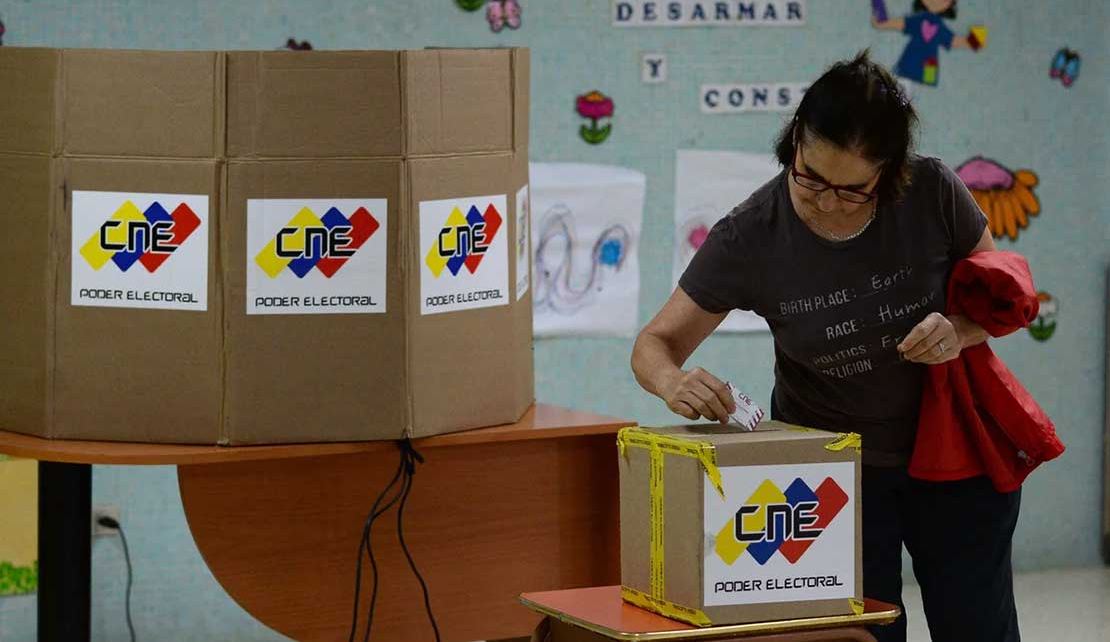
KINGSTON, Jamaica, August 5, 2024 - As I stepped off the plane in Caracas, the air thick with anticipation and the scent of democracy, I couldn't help but wonder what surprises awaited me in the coming days. Little did I know that I was about to witness an electoral process that would challenge everything I thought I knew about fair elections – and about the international politics that surround them.
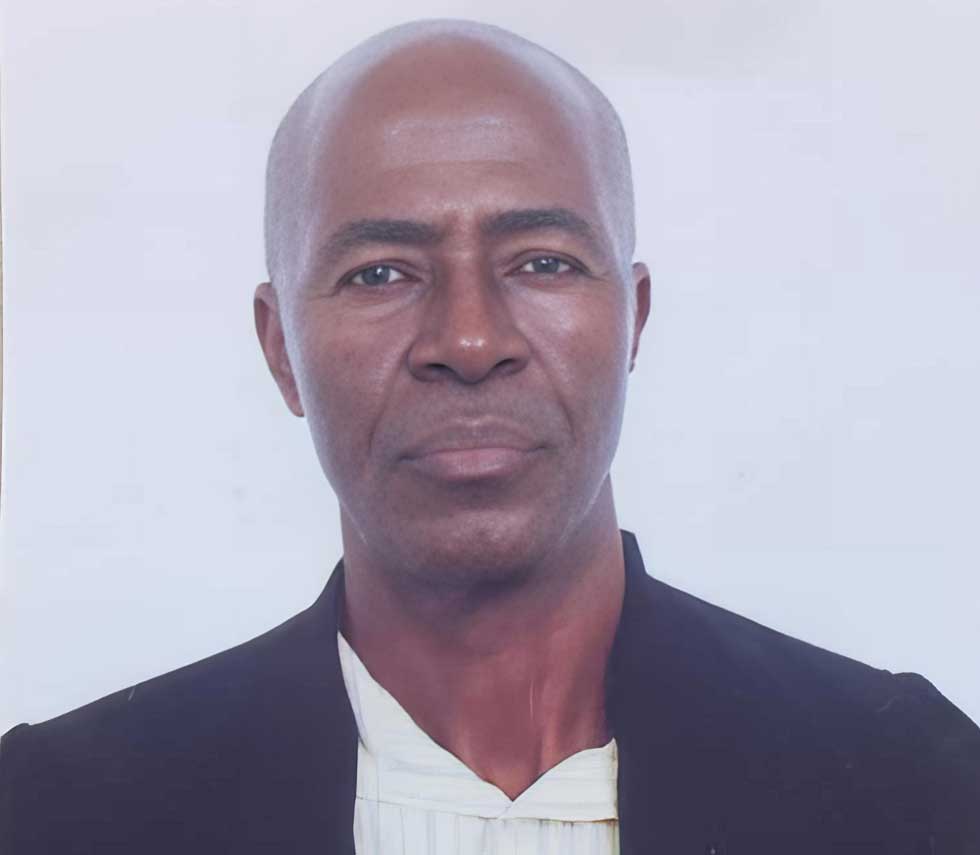
What I saw there was nothing short of remarkable – a testament to the power of democratic systems when implemented with precision and care, and a sobering reminder of the forces that seek to undermine them.
The Best in the World? You Bet.
Jimmy Carter, the former U.S. president and head of the Carter Centre, once boldly claimed that Venezuela's Electoral System was the "best in the world."
After my experience, I can confidently say that Carter's words ring true with the clarity of a polling station bell.
Picture this: a voting process so streamlined, so efficient, that the average citizen spends less than 90 seconds from entry to exit. It's not a fever dream, folks – it's Venezuela's reality.
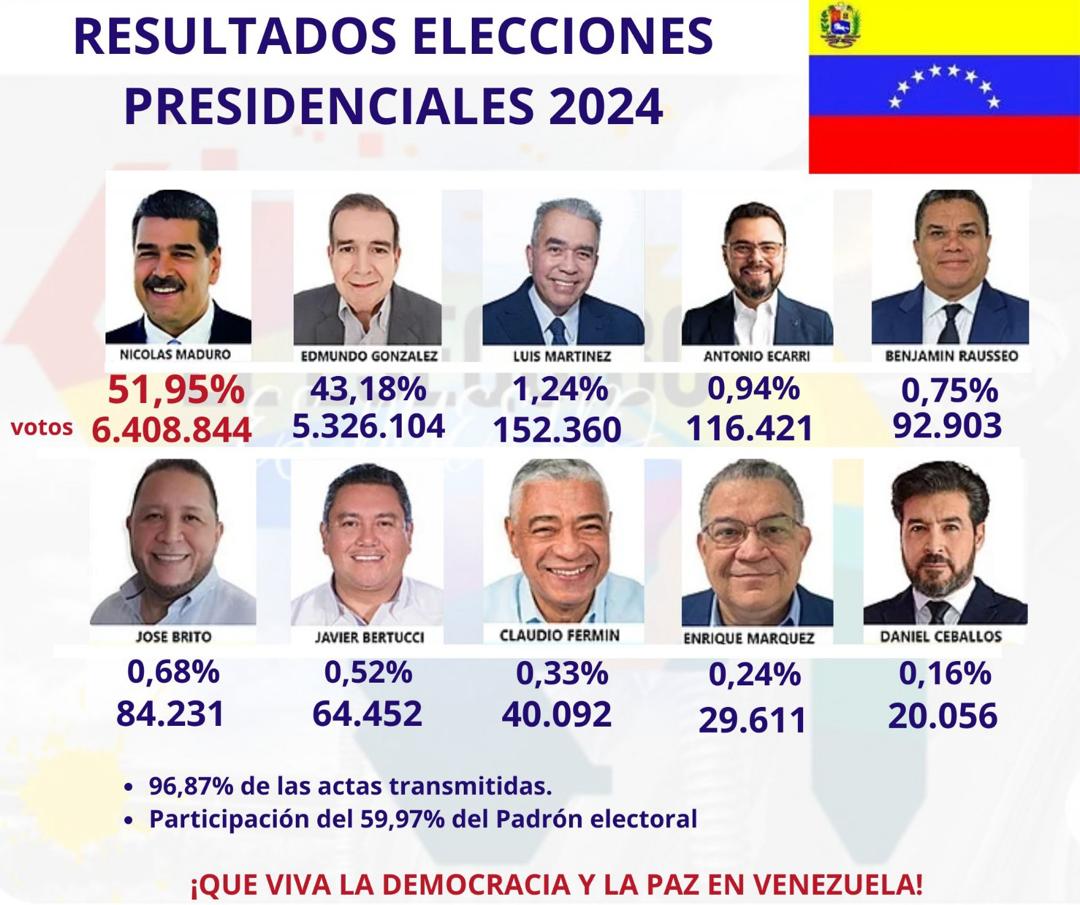 A Symphony of Democracy
A Symphony of Democracy
The voting process I witnessed was a well-orchestrated symphony of democratic participation. Here's how the magic unfolds:
- You enter the polling station, your name is checked against the voter list.
- Your thumb is scanned biometrically – no chance for voter fraud here!
- You're ushered to a voting booth with an electronic screen displaying all parties and candidates.
- A simple tap confirms your choice, and voila! A voting receipt materializes.
- You drop your receipt in a ballot box, leave a fingerprint, sign your name, and you're done.
But wait, there's more! The system includes random audits, multiple party sign-offs, and a series of checks and balances that would make even the most paranoid conspiracy theorist nod in approval.
The Elephant in the Room: International Interference
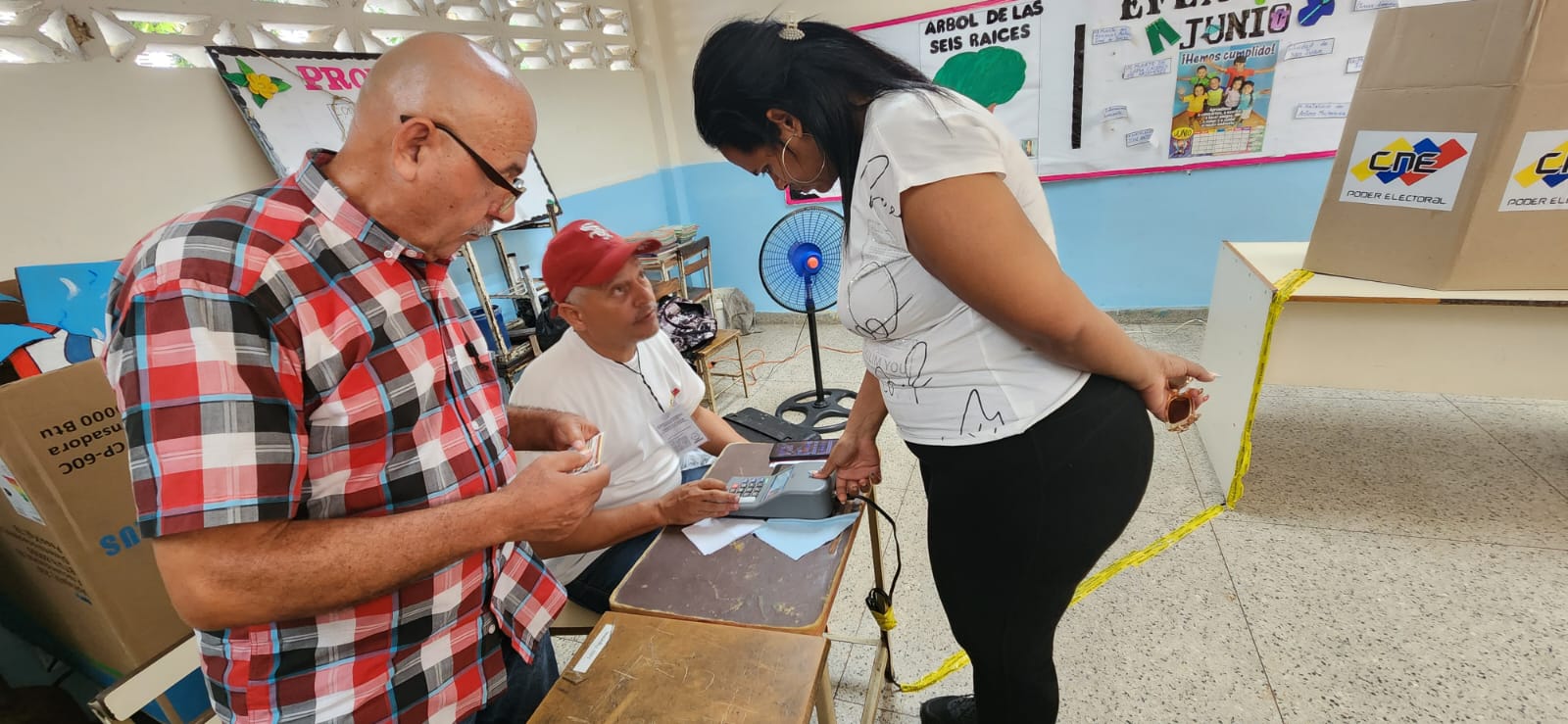 Now, you might be wondering, "If the system is so foolproof, why all the hullabaloo about fraud?" Excellent question, dear reader. The answer, it seems, lies not in the integrity of the process, but in the complex web of international politics and vested interests.
Now, you might be wondering, "If the system is so foolproof, why all the hullabaloo about fraud?" Excellent question, dear reader. The answer, it seems, lies not in the integrity of the process, but in the complex web of international politics and vested interests.
Since 1998, Venezuela has held 31 elections in 25 years. That's more elections than some people have had hot dinners. And yet, cries of fraud only seem to surface when certain parties don't come out on top. Curious, isn't it?
What I've come to realize is that the real issue isn't about the electoral process itself, but about who gets to decide what constitutes a "legitimate" election.
The Venezuelan people have consistently chosen the path of Chavismo, but this choice seems unpalatable to certain international powers.
The Hypocrisy of International Response
U.S. Secretary of State Anthony Blinken recently claimed there was "overwhelming evidence" that the opposition won the July 28th presidential elections. One small problem: he forgot to bring the evidence to the party. This knee-jerk reaction to delegitimize the election results is part of a broader pattern of interference that has plagued Venezuela for years.
Meanwhile, U.S. Vice President Kamala Harris tweeted a concession message for the opposition a mere 23 minutes after polls closed. Talk about efficiency! But it also begs the question: how can one claim to support democracy while simultaneously undermining the very process that embodies it?
The Real Threat: A Historical Perspective
As Caribbean journalist Earl Bosquet astutely pointed out:
"It's important to note that President Maduro is not a security threat to regional security and development. On the other hand, the US government has been a source of threats to countries like Chile under Salvador Allende, Cuba after the 1959 revolution, Michael Manley's Jamaica, Maurice Bishop's Grenada, Daniel Ortega's Nicaragua, and Jocobo Arbenz's Guatemalan government, along with many others."
This historical context is crucial. The U.S. has a long and troubling history of intervening in Latin American politics, often with disastrous consequences for the people of those nations. Venezuela's current struggle is not occurring in a vacuum – it's part of a larger narrative of resistance against external control.
The Power of the People vs. Economic Warfare
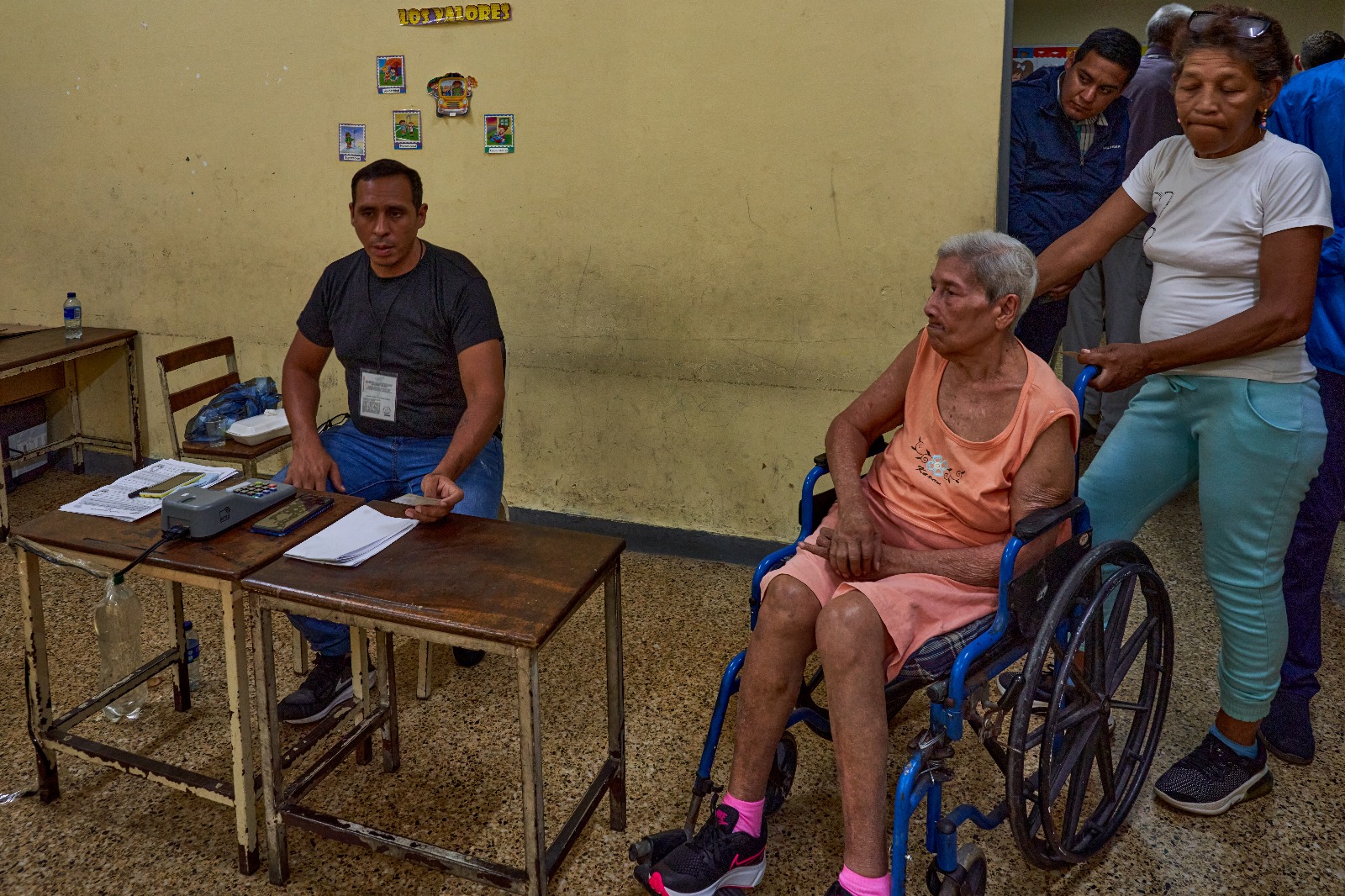 Despite facing a barrage of economic challenges, including 930 unilateral coercive measures (read: sanctions), the Venezuelan people have shown remarkable resilience. These sanctions, let's be clear, are a form of economic warfare. According to economist Jeffrey Sachs, this campaign of economic terror has resulted in at least 40,000 deaths in Venezuela.
Despite facing a barrage of economic challenges, including 930 unilateral coercive measures (read: sanctions), the Venezuelan people have shown remarkable resilience. These sanctions, let's be clear, are a form of economic warfare. According to economist Jeffrey Sachs, this campaign of economic terror has resulted in at least 40,000 deaths in Venezuela.
And yet, under President Maduro's leadership, the country has seen impressive economic growth, plummeting inflation rates, and significant strides in food sovereignty. The economy is growing at an average of 4% per year, inflation has dropped to its lowest rate in 39 years, and 85% of the food consumed in Venezuela is now grown locally.
It's on this foundation of progress, achieved in the face of immense external pressure, that the Venezuelan people have granted Maduro a third term. Not through coercion or fraud, but through a transparent, efficient, and dare I say, exemplary electoral process.
The Media's Role: Mercenaries for Hire?
One cannot discuss the Venezuelan political landscape without addressing the role of international media. As investigative journalist Alan Macleod revealed, some journalists openly admit to being "mercenaries for hire," crafting sensationalist narratives that often bear little resemblance to reality on the ground.
These media operatives, along with questionable polling organizations like Edison Research (rumored to have links with Langley, Virginia), form part of what could be described as a "soft coup" support team. Their goal? To shape international perception and justify intervention.
A Call for Sovereignty and Self-Determination
As I boarded my flight home, I couldn't help but feel a mix of awe and concern. I had witnessed democracy in its purest form – a system that puts the power truly in the hands of the people. But I also saw the forces arrayed against it, seeking to undermine the will of the Venezuelan people.
The United Nations statutes are clear on the right to self-determination of peoples and non-interference in the internal affairs of states. It's high time the international community respected these principles when it comes to Venezuela.
What I observed in Venezuela was not just an election, but a testament to a people's resilience in the face of enormous pressure. It's a story of a nation fighting for its right to choose its own path, free from external interference. And isn't that what democracy is truly about?
As we move forward, it's crucial that we question the narratives we're fed about Venezuela and other nations that dare to challenge the status quo. Only then can we hope to foster a world where true democracy – not just the kind that aligns with certain geopolitical interests – can flourish.
-30-
